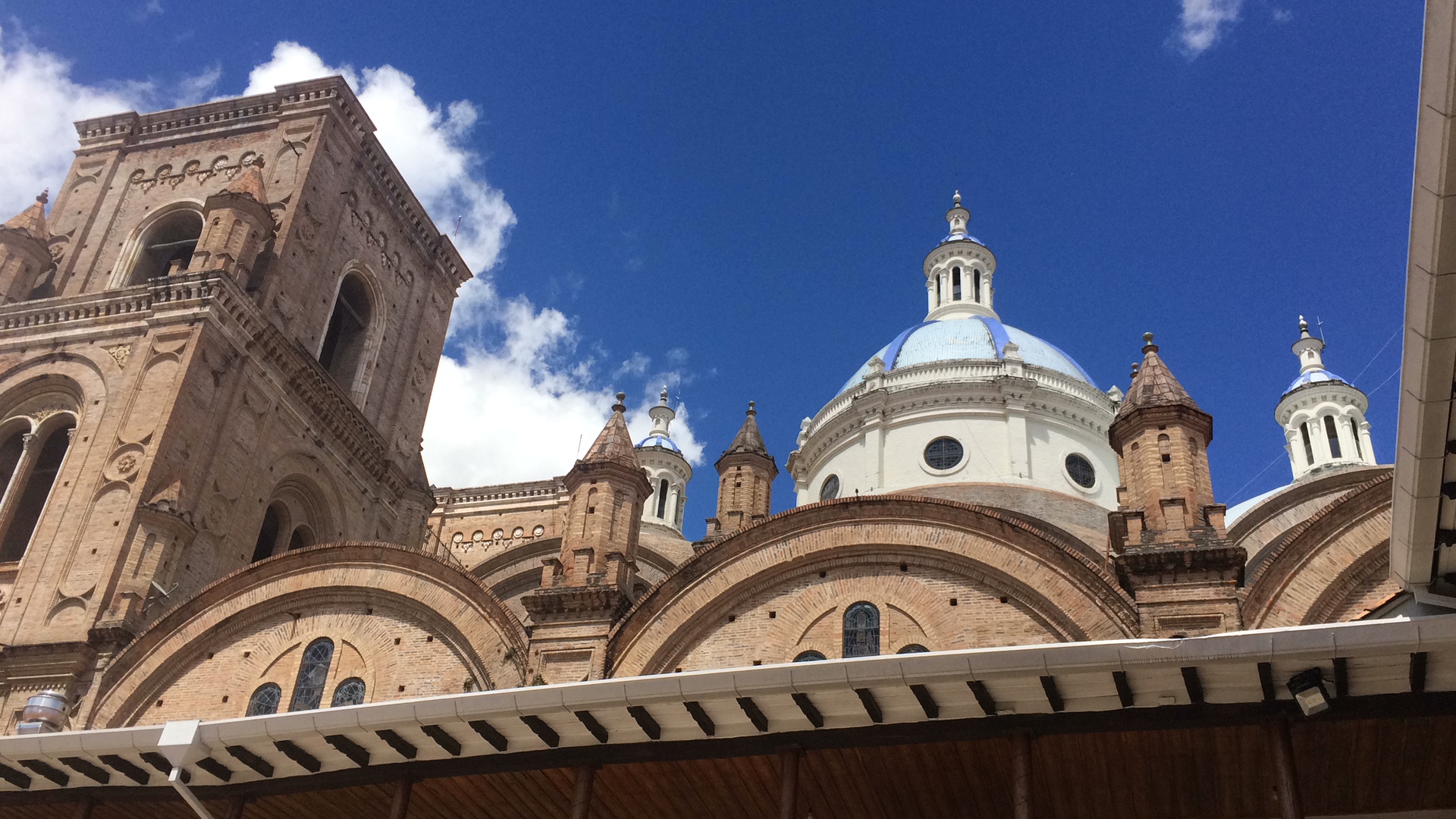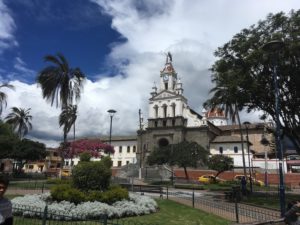
Some of you are wondering about retiring to Ecuador, yourselves. You’ve asked about what it took to make this decision and how we made the choices and how specifically the move came about. So I’m posting an amended compilation of some of the blog posts that I wrote for a travel company as we went along. Now you can benefit from our experience! ——————————————————————
PHASE 1 – Considering The Idea of Retiring in Ecuador
In the second month after our return from Ecuador, Gary and I started talking seriously with each other and with a few friends about the pros and cons of leaving our beloved home country and having an adventure in a place where we would be perpetual foreigners. (Retired, debt-free, relaxed foreigners.) Do we really want to live in South America for several years? The idea is thrilling to both of us! After decades of hard work, we love the idea of having an adventure that’s totally different! We love the U.S. but we want to see more of the world too.
To pull off a move of this magnitude, we’d have to strategize the entire journey, organize a timeline, and learn Spanish. There would be SO MUCH TO DO, to get ready for such a move! It began to get overwhelming. How could we possibly get rid of nine tenths of all our possessions? What should we do about our house, finding renters, storing our possessions? Friends, clients and students have already been voicing their objection to our going so far away. Clearing out all our possessions is a daunting prospect.
A friend invited me to join her big neighborhood yard sale. I scooped up everything I could identify as being definitely yard sale material, and set up a table. It felt like a good first step.
Once the decision was made to consider this big move, we had to decide what to address when. Our initial task list looked approximately like this:
– Learn Spanish, decide whether to use DuoLingo, Rosetta Stone or in-person classes. – Contact the Ecuadorian Consulate ( in Atlanta) to get preliminary information.
– Join more private Facebook groups for Ecuadorian expats.
– Ask Ecuadorian expat groups for suggestions for good Visa attorneys.
– Choose what kind of visa we would aim for (investor or retiree).
– Plot a schedule of visa-acquiring tasks, so we’d have a residency visa before moving. – Start getting rid of everything we can bear to part with, in case we decide to go.
– Start identifying what we would want to take with us if we do go.
– Fix anything that needs fixing in the house, in case we go and rent out the house.
– Contact property management companies, to choose one.
– Find out how to transport a dog and a cat safely to Ecuador.
– Learn about options for shipping some of our possessions there.
– Get advice from experienced expats about what to bring and what to leave.
Would we really do this? Wouldn’t it be easier to keep on living here, and make a nest to retire in? After looking at the looming mound of options, tasks and decisions, we decided not to decide yet.
We began budgeting and planning for a few house repairs. Looked up property management companies. Pelted our Ecuadorian friends with questions. We picked a first and second choice place to live within Ecuador. And we began looking at options for adding on a rental unit to our house, in case we decide to stay here in North Carolina.
Of those tasks on the list, some grabbed our attention sooner than others. Fixing up the house seemed like fun to the newly-retired Gary, so he started in on bathroom repairs. I focused on gathering boxes of items to give away or sell. We’re primarily focusing on home repairs and getting rid of excess possessions.
PHASE 2 – Brainstorming Options for Staying or Going
As we got into the mode of sorting through out belongings and starting to sell them, it started to feel good. The concept of lightening our load felt freeing. Having taken the pressure off ourselves to make a decision, we felt at ease to talk about what it might be like to leave our home and move to a foreign culture. Interestingly, the pressure to decide was what made this so stressful. Therefore we decided to enjoy batting ideas back and forth. Playing with possible scenarios. What if…? What if…?
We looked at various ways it might play out on the U.S. side of the equation, and more ways it might play out on the Ecuador side of the equation.
We brainstormed options in Ecuador for:
– types of living situations
– how our dog and cat would spend their days
– how we’d get around without a car
– what it would feel like to be a tall pale outsider who speaks like a baby – what kind of social activities there might be for us
– how to find the kinds of food and wellness products we rely on here
– whether we might want to continue doing some work or retire fully
– how we might learn Spanish.
We brainstormed options in the U.S. for:
– when and how to break the news to family
– storing some of our possessions for later retrieval
– selling or donating the possessions we want to let go of
– what to bring down on the first trip, second trip, etc
– what if we decided to just stay in the US and make no changes – what if we decide to stay in the US and make various changes
Then Gary’s buddy Jim discovered he needed expensive dental work. He wanted to fly to Ecuador like we did, to have the work done. Gary decided to go with him and check out the city we were considering. He spent all his time preparing for that trip, and fixing up the house.
My life felt top-heavy at that point. I still had a business to run, and the dog and cat still needed attention, and we had friends who were wondering why they never saw us any more. I was exhausted, always either working or sorting our possessions. Should I continue running my business, if we might leave? I was losing my ability to navigate my own life, without a decision being made. Whether we decided to stay or move, we had to decide now.
We made the only decision we were capable of at the moment: The commitment to make a decision within a month. We set an arbitrary deadline: after Gary’s visit to Cuenca, we would decide. Then we set simple parameters for the decision: If Cuenca felt like a place where we could make a comfortable home, we would decide to make the move. We wanted a place where we could make an adventurous, affordable new life for an unknown number of years. If Cuenca proved to be about what we expected, we WOULD go.
We pared down the issues and focused on what we needed to know in order to decide. A surprising factor emerged: We were stressing about deciding whether to stay or go “for the rest of our lives.” How about just “until we feel like coming back”?
Together we agreed that we would make a decision whether or not to move to Ecuador for “a few years, or as long as we continued to enjoy the adventure”. No need to decide about “forever”. When we want to come back to the US we come back!
Gary and Jim explored the city thoroughly. See previous posts.
A summary of Gary’s discoveries about Cuenca would be:
– It’s a pleasant and livable mid-sized city
– The diesel fumes from buses irritated their lungs in El Centro (historic downtown)
– Cuenca is purchasing electric buses to replace the diesel buses
– There are a couple favorite neighborhoods we could happily live in.
– Our dog will have fewer social options there, as we won’t have a car.
– There are art supply stores, organic farms and cafes, so our interests will be supported.
– Overall, it seems like a nice place to live, with a few minor hurdles to be overcome.
PHASE 3 – Shutting Down Businesses
It took several days after Gary’s return for us to face the fact that our decision was now made. We WOULD go to Ecuador for a few years for a retirement adventure.
We turned our attention to our three small businesses. Here are some of the issues we dealt with, when closing down or changing a business:
– Stop advertising
– Decide whether to close the business, sell it, or make it workable via phone or website – Pick a date by which to close the doors
– Identify people to take over some aspects of what we’d been doing
– Look at client files and business files to determine what to keep, what to shred.
– Look at business tools/equipment to determine what to keep / sell / give away/ take.
– Figure out about shutting down business licenses and memberships
– Consult with the accountant to do everything correctly, especially the final tax reports
This decision catapulted us into high gear for making a move. When we began wrapping up our businesses, it was rather emotional to let those projects go. Added to the sorting and selling of possessions, it added a whole lot more work to our days. Those business closing or shifting preparations are like an entire career in themselves.
There was a sense of excitement about a fun adventure ahead, combined with a sense of dismay over the amount of work to be accomplished before we could go. See the next post for more information about how we made the move happen.
